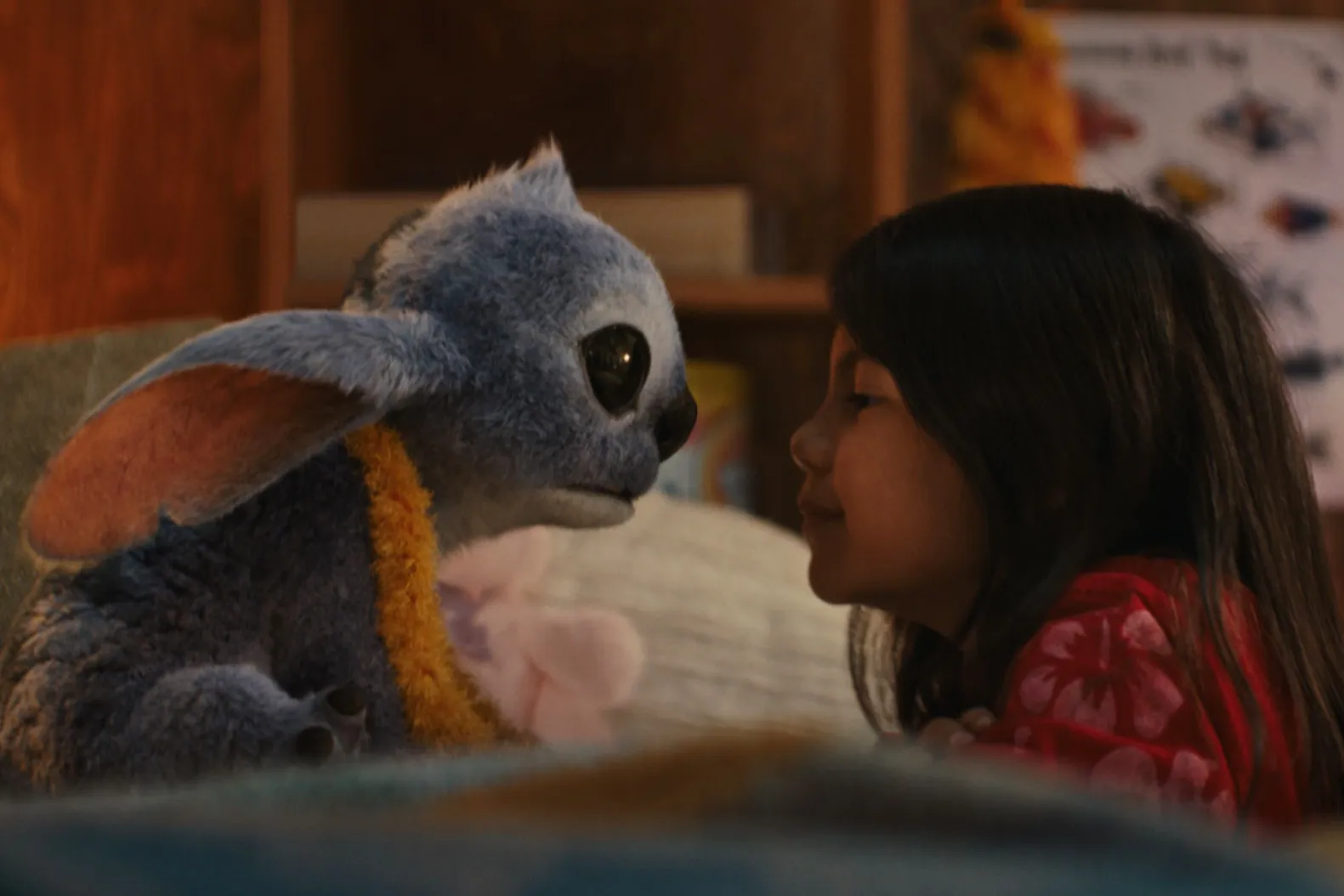Director: Dean Fleischer Camp
Writers: Chris Kekaniokalani Bright and Mike Van Waes
Stars: Maia Kealoha, Chris Sanders, Sydney Agudong
Synopsis: The story of a Hawaiian girl meeting a fugitive alien who helps mend her broken family
For well over a decade now, Disney has been sucking their well of classic animated films dry to make a quick buck by creating live-action versions of the same material. Some are completely different takes on the material like 2020’s Mulan, and others are lifeless photocopy jobs like 2019’s The Lion King. Their latest attempt at this tried and true formula with Lilo & Stitch (2025) ends up lying somewhere in between these two types. The original Lilo & Stitch film from 2002, despite coming out at a time when Disney Animation was in a slump, proved to last through multiple generations as a heartwarming story about the meaning of family. Unfortunately, considering the quality of all of their others, it’s no surprise that Disney’s latest live-action revamp misses the core, the heart from the original.
The new Lilo & Stitch, despite running 20 minutes longer than the original film, has so much less thematic substance than the original that it’s utterly confounding. When it’s not just following the beat-by-beat strokes of the original, it makes some of the most bizarre and haphazard changes and additions to the story that either add nothing to the film but fluff or actively harm what the remake is trying to accomplish. Young actress Maia Kealoha, as Lilo, seems to be the only aspect of this remake that the movie captures with the warmth of the original. Still, Lilo & Stitch appears to yet again render these remakes as pointless, sludgy-looking cash grabs for the company’s benefit.
The narrative of this remake mostly remains the same with mad scientist Jumba (Zach Galifianakis) being put on trial for the creation of experiment 626, aka Stitch (voiced by Chris Sanders, co-director and voice of Stitch in the original film). Still, Stitch goes on to escape his capture and lands on planet Earth in the state of Hawaii where he is adopted by Lilo and Nani (Sydney Agudong). However, the issues with this remake are apparent from the start with a weirdly breakneck pace through its first 20 minutes of introducing us to the characters while trying to hit beats that the movie knows its audience will remember. The main problem is that this is yet another case where the lack of these moments in the remake will be filled in with the nostalgia that many have for the original film, which is the laziest way to tell this story to both newer and older audiences.
As stated previously, it’s very apparent that the only performance here that manages to capture even an iota of the original’s charm is Maia Kealoha, who brings a similar likability to the character that is present in the original. She manages to find a nice connection to Stitch even though the CG creature is not there with her on set, an incredibly impressive feat for such a young first-time performer. Unfortunately, performance-wise there isn’t much else to talk about other than the shockingly awful performance from Zach Galifianakis. From the opening minutes, it is so obvious that his type of voice and mannerisms as an actor do not fit the character whatsoever, and it doesn’t help matters when they entirely shift Jumba as the villain of this film. This haphazard change ruins the dynamic he is supposed to form with Stitch later in the film, when he realizes the creature has greater purpose than destruction.

Even though the central focus of the original surrounds Lilo and Nani’s family, there are a shocking amount of changes and new additions to the human cast of the film, as well. The most apparent of them is the inclusion of Tūtū (Amy Hill) as a neighbor who lives next to Nani and Lilo, but as with the other remakes, it comes off as an inclusion whose presence makes no difference to the film. Courtney B. Vance plays this film’s version of Cobra Bubbles who is also bizarrely changed to be a CIA agent who decides to be a social worker in disguise instead of the reverse; yet another unneeded fluff change that somehow doesn’t even compare how different Sydney Agudong’s Nani is in this version of the story. Here, she is made to be an aspiring marine biologist who can’t achieve that career because of her little sister. Not only does this change barely add anything new to the core of the story, but it forgets that what made Nani’s smaller regular life conflicts so important was that it could relate so much more to the struggles of the average person. It’s an utterly confounding change that takes so much more away than it adds.
The truth is, I wish I could say Disney’s Live-action Lilo and Stitch was even just mildly better than the bottom of the barrel quality we’ve been getting from these kinds of movies for years now, but that would just be a swerve further away from the truth than imaginable. It’s yet another limp reincarnation of such an lively 2D animated film that fails to even remotely capture the same sort of magic that was present in that 2002 film. Lilo & Stitch (2025) is an empty husk that will leave the brains of those who watch it immediately after the fact.






